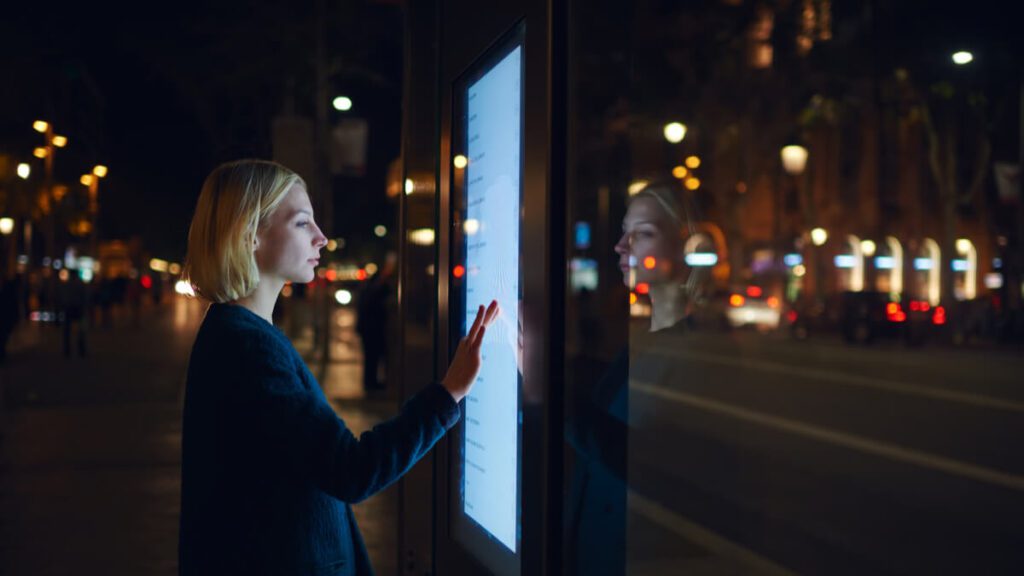
Disruptions are a welcome break in almost all the industries around the world; however, some disruptions can indeed be catastrophic, but as every coin has two sides, it also brings great opportunities.
The digital disruptions brought by the global pandemic has created a difficult situation for a few but there are several institutions that took it in a positive way. The regulations imposed by the novel COVID-19 pandemic have severely impacted the worldwide economy, negatively reflecting on the operations of all industries far and wide.
Sectors such as healthcare faced extreme pressure due to the excessive inflow of operations, while others like entertainment and F&B faced a downhill decline in their customer base.
While merely a handful of industries held their ground among all the chaos of 2020, finance was, and still is, a shining light within the storm.
Being the driver of the economy, it was fully responsible to hold up countries across the globe and making sure that businesses kept the lights on. Finance was the only industry that did not falter in the face of the storm of economic disruptions but weathered it to become the savior of many other industries.
Be that as it may, digital disruptions are not all doom and gloom, but rather beneficial in signifying change, which translates into evolution and growth. Industries across the spectrum can leverage this digital weapon to propel themselves forward in their respective domains, allowing them to be better prepared for the 4th Industrial Revolution.
Smart Cities
These digital disruptions brought about the growth and acceleration of bring smart cities to the forefront of technological change. It is worth mentioning that disruptive technology is a term very closely associated with smart infrastructures.
The onset of the Internet of Things (IoT) and Artificial Intelligence (AI) are considered to be the foundation within the construction of any smart city. The positiveness of this technology knows no bounds, as IoT places citizens and users in the driving seat, while the self-sufficiency of smart infrastructure renders it less vulnerable to external threats.
5G
Disruptive technologies are deployed not with the intention of changing the structure, but mostly the framework. These evolutions bring about economic and financial progressions, and apart from AI and IoT, the fifth generation of mobile networks is another core disruption.
As the Internet binds us all together, the induction of 5G will allow us to access data at a much faster and secure rate. This, in turn, plays in favor of globalization in all aspects of the world, and not merely reserved for smart cities, for it allows the entire globe to be placed within a fingertips’ reach of a single device.
Blockchain
With increased accessibility to the Internet comes security and verification; this is what makes blockchain and cryptocurrency such a sought after the disruption.
With its feature of immutability, it is finding its way in the identification and verification process of almost every sector, from banks and financial sectors reaching law and healthcare. Blockchain technology is evolving with the use of AI and other progressive technologies to provide it with a stronger framework on a daily basis.
Big Data
This brings us to the problem of data.
Having so many things going on across the Internet would generate heaps of data. This brings us to the topic of the next disruptive technology, big data, and data analysis.
Data has become even more powerful than money, which is why with proper data analysis, Machine Learning (ML) models can be trained even better to recognize and prevent threats and attacks in hopes of building a safer environment.
It provides a scope of proper storage and security within the cloud, ensuring that each and every device in the city or infrastructure is safe from external breaches or attacks.
Digital Identity
Finally, finance and banking being the core of any development, digital verification and biometrics will form the last of the disruptive technologies.
The world is witnessing a lot of this already due to the pandemic. Online KYC for identity verification and authentication plays a significant role in the customer onboarding process. KYC has become a mandatory prospect within any online transactions since biometrics are replacing traditional passwords and code to ensure security across the board.
Needless to say, the world in the 21st century is a very different one from what it was assumed to become years earlier. Thus, it is safe to say that the upcoming change we will witness in the next century is unprecedented as well.
Disruptive technologies are only one of aspect of what will be the cause of the drastic change. Everything is interlinked, and the more we read into technology, the more we’ll see realize that years from now, it is technology that will run humankind and not the other way round.
Shub is the Co-founder & CEO Of PiChain – an India-based RegTech company. He is an Entrepreneur passionate about cutting edge technology that makes human lives better. He is on a quest to achieve Sustainable Compliance for 500 Entities by 2025. He has decade-plus years of experience in building and selling software for Finance and Regulatory compliance management.
At PiChain, Shub provides organizational leadership with his unique combination of business understanding and technical acumen.